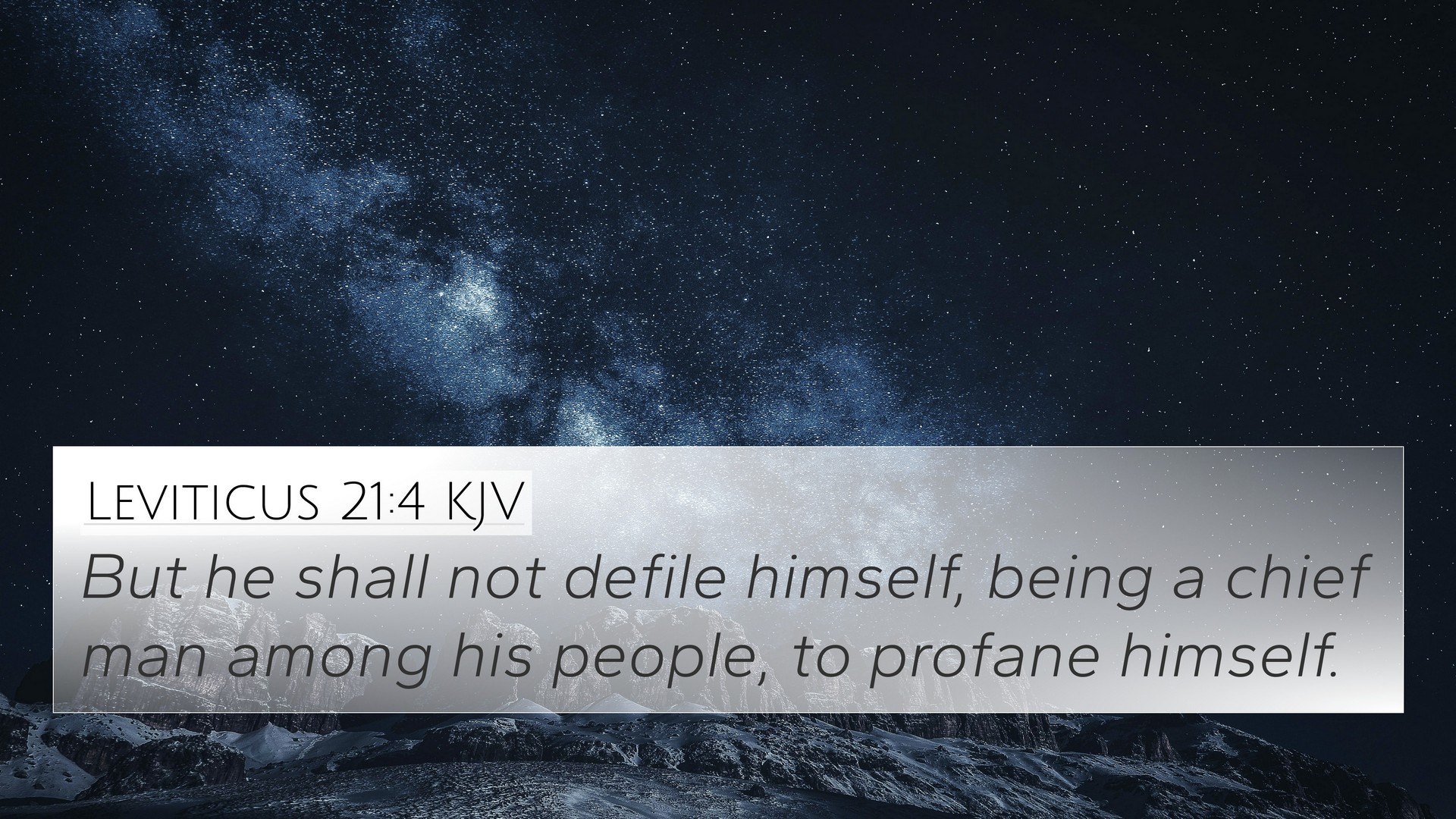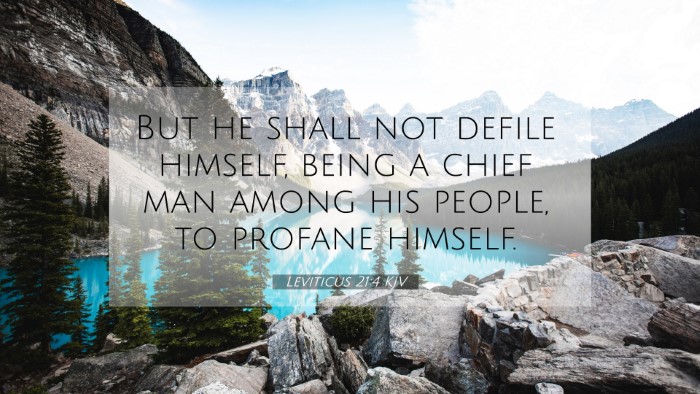Understanding Leviticus 21:4
Leviticus 21:4 states:
"Neither shall he profane his seed among his people: for I the LORD do sanctify him."
This verse emphasizes the importance of a priest's holiness and his responsibility to maintain the sanctity of his family lineage. Let's delve deeper into its meaning by leveraging insights from various public domain commentaries.
Summary of Insights
The message conveyed in this verse articulates the overarching theme of holiness and separation as fundamentally important in the priestly duties, which can be understood through the following points:
-
Priestly Responsibility: According to Matthew Henry, this verse signifies that the responsibility of maintaining spiritual purity extends to the priest’s family. The priest must not only uphold his own holiness but also ensure that his descendants do not engage in practices that would defile their sacred lineage.
-
God's Sanctification: Albert Barnes notes that the sanctification mentioned here reflects God's declaration that the priest is set apart for His service. Thus, a priest must avoid actions that would bring disgrace to this divine appointment.
-
The Seriousness of Defilement: Adam Clarke points out that the profaning of one's seed refers to leading one's descendants into sin. This act is viewed as a severe transgression, reflecting a broader societal impact.
-
The Concept of Holiness: The principle of holiness in Scripture is not solely about individual purity but encompasses the whole community, as elucidated by various commentators. The priest's behavior influences not just his family but the entire congregation's standing before God.
Cross References to Leviticus 21:4
Understanding Leviticus 21:4 can be enriched by examining other scripture passages that share similar themes of holiness, priestly conduct, and familial sanctity. Here are some notable Bible cross-references:
- Exodus 28:43: Discusses the garments of the priests and their need for sanctity when serving God.
- 1 Peter 2:9: Emphasizes the priesthood of all believers and calls for holiness in conduct.
- Leviticus 20:26: Illustrates God’s command for His people to be holy, for He is holy.
- Hebrews 5:4: Talks about the honor of being called into the priesthood, reinforcing the theme of sacred duty.
- Isaiah 43:21: Highlights God’s intention for His people to declare His praise, linking back to the concept of maintaining purity.
- Malachi 2:6: Relates the priest's transformative role in leading the people in righteous ways.
- Numbers 18:1-7: Chronicles the duties and responsibilities of the priests, similar to the call for conduct found in Leviticus.
Theological Implications
The implications of Leviticus 21:4 extend beyond the priestly family to a broader theological discourse concerning the holiness of God and the community. The significance lies in:
-
Community Impact: The family of the priest is viewed as a representative of the community. Consequently, their actions reflect not only their spirituality but also that of their people.
-
Inter-generational Responsibility: There is a strong emphasis on the implications of one generation's actions on the next, reinforcing the need for teaching and preserving holiness.
-
Integration of Old and New Testaments: The call for purity within the priesthood resonates throughout Scripture, linking themes found in both the Old and New Testaments regarding living a life set apart for God's purpose.
Conclusion
Leviticus 21:4 serves as a reminder of the sacred responsibilities placed upon those who are set apart for God's work—namely, the priests. The connections and cross-references illustrate a continuity of God's expectations throughout the Scriptures, reflecting His unchanging nature and the call for His people to maintain a holy life. Through careful study and cross-referencing biblical texts, believers gain deeper insight into their faith and how they are called to live in connection with the Lord.



